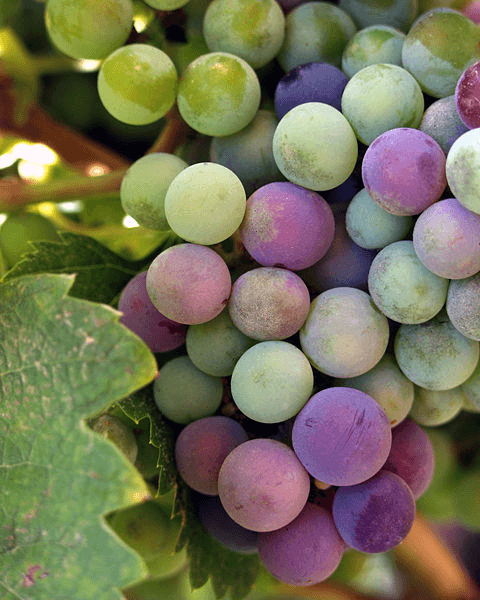A Guide to Organic Wines
By Guest Blogger Jove Arthur [email protected]
 Photo by Tomás Castelazo (Own work) [CC-BY-SA-2.5 (https://creativecommons.org/licenses/by-sa/2.5)], via Wikimedia Commons
Photo by Tomás Castelazo (Own work) [CC-BY-SA-2.5 (https://creativecommons.org/licenses/by-sa/2.5)], via Wikimedia Commons
For years, wine manufacturers have introduced organic wine to the market. However, some wines labeled as organic were not produced using real, organic ingredients. Confusing ingredients on the labels make it hard to determine whether or not you are really getting wines which are processed organically and devoid of synthetic additives. In this post we will discuss different types of organic wines that you can find locally.
Organic Wine
Experts report that about 250 kinds of chemicals can be found in a bottle of traditionally manufactured wine. Fortunately, we can choose from a wide array of wines that come from vineyards that do not use harmful chemicals which come from pesticides or insecticides.
The U.S. Department of Agriculture makes sure these vineyards comply with their National Organic Program in order to be certified organic. This means organic wine must only be made from 100% organically produced ingredients and processed organically. Added sulfites, then, are not allowed by the USDA to be introduced to 100% organic wine.
Sulfites are a preservative commonly used by winemakers as it helps in keeping the spirit fresh and crisp. Sulfites are considered by the USDA as synthetic food additives. They are generally not harmful to humans unless the person has severe asthma or if his body lacks the enzymes that are needed to break down sulfites safely. Sulfite content in wines is highly regulated all over the world.
Nevertheless, there are natural sulfites which are produced when grapes are fermented to create wine. Natural sulfites are present in grapes, garlic, onions, and several other plants which they use as protection against harmful microbes. 100% organic wines may contain somewhere between 6 to 40 parts per million of natural sulfites. On the other hand, traditional wines can contain up to 350 parts per million of sulfites.
Biodynamic Wine
When it comes to making biodynamic wine, there’s more to it that just using organic ingredients or processes. Biodynamic vineyards as well as farms do not use products with synthetic ingredients and chemicals. Moreover, they take it a step further and use methods that make the farm seem like a living organism instead of just a source for produce. Biodynamic farming takes advantage of the resources found inside the farm. They introduce biodiversity among crops, livestock, and wildlife as a substitute for fertilizers and pesticides. They also make use of compost from animal waste, plants and minerals.
This principle is based on the propositions made by the scientist Rudolf Steiner in 1924. He wanted to find a solution to the deterioration of soil and crop quality due to the adoption of industrial farming techniques. These days, a biodynamic farm needs to be certified by the Demeter Association and must comply with the USDA’s National organic program in order to label their products biodynamic.
Biodynamic wine is said to have a more vibrant, stronger, and clearer taste as compared to other types of wine.
Natural Wine
Also known as sustainable wine, this eco-friendly product is produced organically while using most of the same methods used by biodynamic farmers. Unfortunately, just like common food products marked as all natural, natural wines are unable to prove their claims through certifications or federal laws. One of the primary challenges is the huge costs of gaining these certifications. Most small vineyards do not have enough funds to have their farms certified by the proper authorities.
Sustainability isn’t the only important characteristic of natural vineyards. The process of making wine should be so natural that the wine is produced with as little intervention as possible. Unnecessary ingredients such as sulfites and sugar are not used. Additionally, technologically advanced methods such as micro-oxygenation are also not done in natural vineyards.
And although it’s hard to determine if wines labeled “organic” were really produced with zero synthetic additives, this should keep you from buying such products. By educating yourself about different wines that are sold on the market and asking winemakers questions regarding the processing of their products including the types if ingredients they used to produce their wines, you will learn the subtle difference between these spirits.
Wines have always been Jove Arthur’s favorite, especially when he invites friends for a dinner at his modest home. He loves to relax by reading books and watching comedy films. He is the online sales manager at Door Emporium, a seller of knotty alder exterior doors that are perfect for both traditional and classic applications.
If you need help with temperature, contact Cold Craft, Inc.
408.374.7292 or [email protected]
Share This Article!
Newsletter
Subscribe to our newsletter and stay updated on the latest.
Your email is safe with us, we don’t spam.

